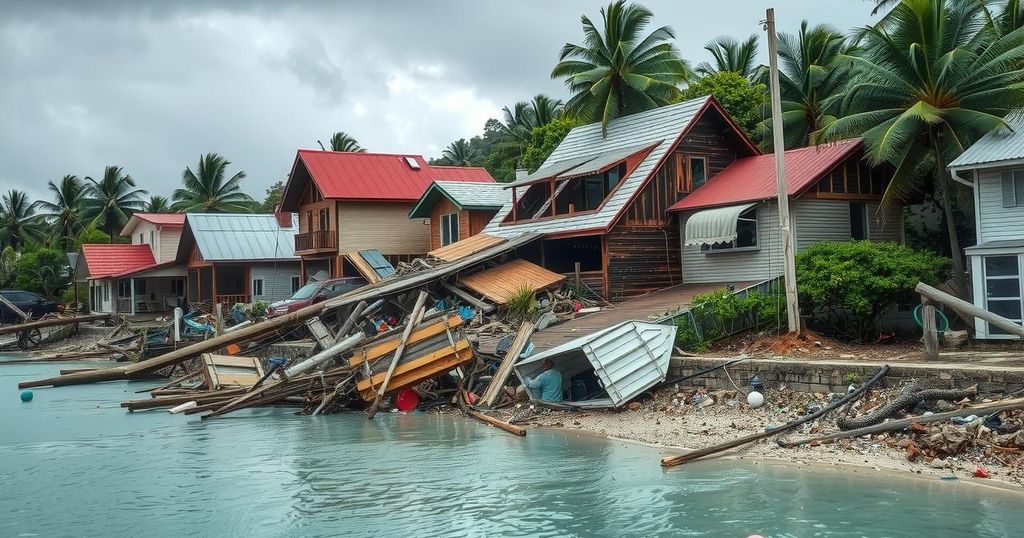Cyclone Chido struck Mayotte on December 14, 2024, resulting in extensive damage to the environment, infrastructure, and food supply. Satellite images reveal stark contrasts in vegetation before and after the storm, while local experts highlight severe impacts on tree composition and agricultural losses. Critical infrastructure was also compromised, necessitating urgent recovery efforts.
On December 14, 2024, Cyclone Chido struck the islands of Mayotte with catastrophic effects, leaving behind significant devastation. The cyclone’s high-velocity winds dismantled roofs, brought down utility poles, and uprooted numerous trees across the region, transforming the lush landscape into a stark brown expanse. Satellite imagery reveals striking contrasts in the environment, with the Operational Land Imager aboard Landsat 8 showcasing the dramatic alterations before and after the storm.
Jess Zimmerman, an esteemed ecology professor at the University of Puerto Rico, noted the cyclone’s extensive impact on the island’s vegetation. Areas particularly affected include the hillsides near Mamoudzou, where structural damage to trees is prominent due to the exposure to intense winds. High winds and heavy precipitation relentlessly assault trees, ultimately leading to severe uprooting in vulnerable landscapes, especially at elevated terrains.
Reports from Agence France-Presse highlight the severity of the damage, recounting the collapse of a 300-year-old baobab tree onto a restaurant and showcasing a 10-foot soil mound left by an uprooted acacia. The crisis extends to agricultural losses, as banana trees and other essential crops have been devastated, threatening food security for local communities. The infrastructural impacts are similarly concerning, with significant damage reported in essential services including airports and hospitals, as well as disruptions to power, water, and communication networks.
The European Commission’s satellite evaluations indicate that most of the destruction occurred in northeast Grande Terre, where Cyclone Chido initially made landfall. The aftermath of this cyclone emphasizes the vulnerability of island ecosystems and infrastructure to such natural disasters, calling for urgent humanitarian assessments and assistance efforts.
Cyclone Chido represents a significant climatic event for Mayotte, a French territory located off the southeast coast of Africa. Natural disasters like cyclones pose considerable risks to island communities, primarily due to their reliance on stable environmental conditions for agriculture and infrastructure. The southwest Indian Ocean experiences various cyclonic activities, which not only disrupt human life but also considerably alter ecological landscapes. The analysis of vegetation damage following such cyclones offers insights into long-term ecological consequences and the resilience required for recovery.
In conclusion, Cyclone Chido has profoundly affected Mayotte, causing widespread devastation to the environment, local agriculture, and critical infrastructure. The cyclone highlights the vulnerability of island ecosystems to climatic phenomena while posing immediate risks to food security and community well-being. Recovery efforts are essential not only for restoring normalcy but also for evaluating and enhancing the resilience of vulnerable populations against future climatic events.
Original Source: earthobservatory.nasa.gov






